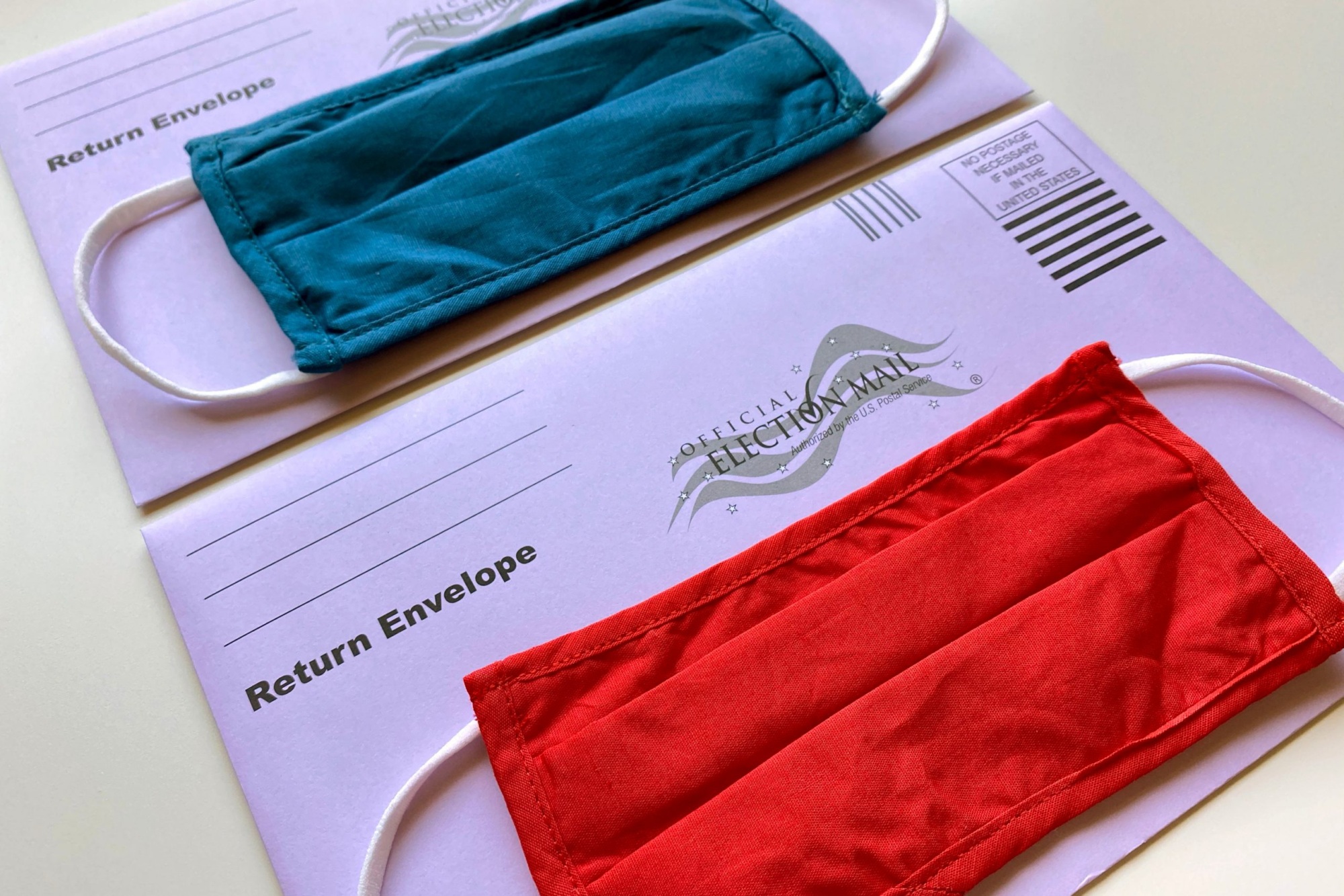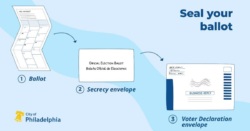Election Days Advocacy

Voting is not just happening on November 3, 2020; in many states, it is happening right now as you are reading this. Because of the challenges presented by the COVID-19 pandemic and a national movement toward making voting more accessible, many states are offering vote-by-mail (VBM, also known as absentee voting) and/or early in-person voting well before Election Day. Nonprofits — trusted messengers that can reach millions with information and services — can play a huge role in supporting fair and safe elections and robust voter turnout. While 501(c)(3) organizations cannot support or oppose a candidate for elected office, they can support voting in a variety of ways.
What can 501(c)(3)s do during the election?
Encourage people to serve as poll workers.
Encourage your constituents, members, and supporters to serve as poll workers if they can. Traditionally, the polls have been staffed by older people, who are at high risk of health complications if sickened with COVID-19. Thus, states anticipate that there will be a huge shortage of poll workers this election, which could result in closed or consolidated polling places and longer lines for voters. Each state has their own rules, but most need thousands of volunteers to work at the polls and many even provide pay for temporary election workers.
Check out this inspirational video from More Than a Vote on how poll workers are upholding a legacy of hard-earned voting rights. 501(c)(3)s can share these types of nonpartisan messages.
Educate voters on the different options for how to cast their ballot.
Not only do we have millions of first-time voters in this election, but, in many places, the voting procedures are still being determined as states figure out how to conduct a safe and fair election during a pandemic. The rules on how voters can cast their ballots varies by state and sometimes by county, so check with your local election officials for guidance. Below are some tips on how nonprofits can educate voters about the different voting options.
In-Person Voting
501(c)(3)s can assist voters in locating their correct voting place, educate them on the appropriate identification needed to vote, encourage them to be prepared for long wait times, and inform voters that they cannot wear clothing, masks, or hats that reference candidates, political parties, or ballot measures when voting.
Vote By Mail (Absentee Voting)
The use of vote-by-mail or absentee ballots has risen drastically this year, driven by the pandemic. Voters have a lot of questions about when and how to obtain a vote-by-mail ballot, and then how to properly complete and return it. 501(c)(3)s can clarify this process to voters, such as whether vote-by-mail ballots will automatically be sent to all eligible voters or if they must be requested. If voters must request their ballot, c3s can highlight how to do so and what the deadline is for making the request.
501(c)(3)s can likewise explain the rules regarding how to return their ballots. This can cover issues around proper signature(s) on the return envelope and whether to include copies of proper identification. It can also include details about how to mail the ballot through the post office, drop the ballot in designated drop off boxes, or even dropping the ballot off at a polling location or the local election office.
For instance, did you know you cannot send in a naked ballot in Pennsylvania? A “naked ballot” is a vote-by-mail ballot that is returned without first being placed in a secrecy envelope. Here are instructions from the City of Philadelphia on how to avoid returning a “naked ballot” in Pennsylvania.

Provisional Ballots
Provisional ballots have not received much media coverage this election cycle, but they are frequently used on Election Day. A provisional ballot is issued when a voter cannot be found on the voter roll or when the voter is listed as a vote-by-mail voter but does not have a vote-by-mail ballot to surrender at the poll.
501(c)(3)s can alert voters to their rights regarding provisional ballots. For instance, rather than walking away from a polling place without voting, a voter should ask for a provisional ballot. Such ballots will be counted once the election official verifies that the voters are eligible to vote and that they have not already cast another ballot. Some jurisdictions even have a system for voters to track the progress of their provisional ballot as the ballot moves through the election process.
Facilitate voting.
There are many practical ways that c3s can make it easier for people to vote. Some ideas include offering rides to the polls or identifying childcare services for voters stuck in long lines. 501(c)(3)s can even deliver pizzas to voters and poll workers. For c3s that have expertise in another language, translating voting materials will greatly help non-English readers know what is on the ballot. Of course, c3s must steer clear of telling voters who to vote for in all of these activities.
All 501(c)(3)s, including private foundations, can encourage everyone eligible to vote. For suggested voter engagement messaging and engagement, check out our Social Media Action Plans for Private Foundations and our Social Media Plan for Public Charities. They are designed to make it easy for organizations to use their social media accounts to safely encourage people to vote.
Protect the right to vote.
501(c)(3)s can help educate the public about voter protection hotlines such as 866-OUR-VOTE. Voters who experience voter intimidation or believe that they are being denied their right to vote should reach out to these hotlines for help.
Nonprofits can also work to increase public engagement throughout the election process—especially if election officials are not carrying out their duties to ensure a safe and fair election.
Help people understand that because of the unique nature of voting during a pandemic, we may not have definitive election results on November 3.
Election experts forecast that we may not have definitive elections results the night of November 3, especially in states like Pennsylvania and Michigan, where election officials are not allowed to open or start counting vote-by-mail ballots until Election Day. With the unprecedented number of vote-by-mail ballots, it could be weeks before we know who the winner is in a close race. Voters need to understand that this is the democratic process at work and not instantly leap to the conclusion that voter fraud has occurred.
This tweet from the Leadership Conference on Civil and Human Rights is a great example of a c3-permissible message that certifying election results takes time and to #CountEveryVote.

Use the courts.
501(c)(3)s should remember that litigation is a tool in their advocacy toolbox. Currently, there are hundreds of election-related cases pending around the county that may change how states run their elections in the coming weeks. A recently victory by The Texas Civil Rights Project stopped voter “purges” that would have affected many naturalized citizens in Texas.
If necessary, c3s can file lawsuits as plaintiffs, attorneys, or amici to ensure a safe and fair election, including keeping the polls open during the required hours and counting ballots postmarked by the state’s mandated deadline.
Fund these activities.
All c3s, including private foundations, can fund nonpartisan voter education efforts. If you don’t feel ready to do this work yourself, supporting another organization — through a general support or specific project grant — can go a long way.
What can 501(c)(4)s do during the election?
The good news is that 501(c)(4)s can do everything that c3s can do. 501(c)(4)s can even carry out some of the activities above in a partisan manner as long as it is a secondary activity for the c4, and they follow state and federal campaign finance laws.
Resources:
Appendix B of Rules of the Game: Permissible Nonpartisan 501(c)(3) and Partisan Campaign Contact on Voter Engagement and Protection Efforts
501(c)(3) Contact with Parties and Candidates Concerning Election Protection Efforts
Voter Registration Deadlines by State (Vote.org)
Do you want to be a poll worker? Learn more: https://www.powerthepolls.org/
Election Protection Hotline: https://866ourvote.org/
Do you want to be a poll monitor? Learn more: https://protectthevote.net/
